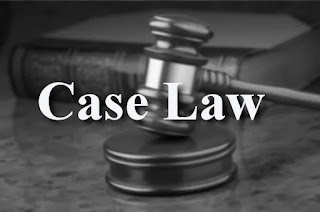R v John Ndhlovu
Criminal Case No.43 of 1954
284 words
Fact
Defendant (Ndlovu)
and his wife after drinking beer at one place we're headed to another. As they
were on their way, an argument arose between them in the process the wife
insulted the defendants’ mother particular referring to her private part and
from there the defendant ascend on the wife with his hands and feet resulting
in fatal injuries that led to the wife’s demise. Thus, the defendant is charged
with the murder of his wife contrary to Section 177 of the Penal Code.
Issue
The issue here is
whether native customary law applies to criminal offences seeing that the
criminal offences were brought about because of the native custom of
chastisement which according to expert evidence was warranted to be reasonable
and lawful regarding the wife’s expression about the defendant’s mother. A
further issue is the position of provocation in manslaughter.
Held
Section 17 of the high court ordinates (Cap. 3) necessitates that in certain situations native customary law applies although limited to civil cause or matters. The Chief Justice Sir Arthur Lewey held the defendants’ actions are unlawful as they did not administer native customary law in that court that would suggest otherwise and any native law which is repugnant to justice, good conscience or compatible with legislature shall not hold in that territory. He further held there is insufficient evidence to charge murder but manslaughter. And with this, the defense counsel submitted in aid of the matter of provocation which was dismissed because in manslaughter provocation can only be a mitigating factor regarding the sentencing. All in All, the defendant was guilty of manslaughter beyond reasonable doubt contrary to Section 176 of the Penal code.
Note that the sections of the penal code cited in this case summary are in accordance with the penal that was held at that time (1953).

